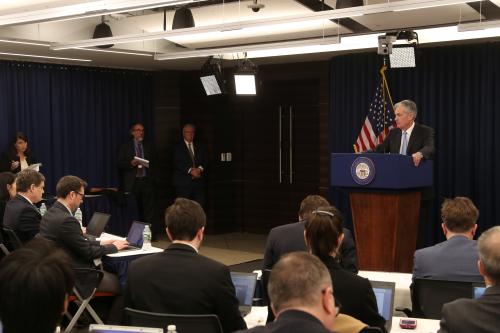A version of this op-ed was originally published in the New York Times on October 15, 2019.
If you play by the rules, working to earn a living and saving to provide for the future, taxes take a piece of your earnings. If you win a state lottery, you owe tax. But if you get lucky in the lottery of life and land an inheritance, you owe no federal tax. That isn’t fair, is it? Extending the federal income tax to include inheritances would end that inequity.
Extreme inequality is troubling for various reasons. It fosters gross and wasteful consumption. More importantly, it undermines the principle of political equality: Nearly unencumbered transfers of wealth permitted under current law perpetuate those imbalances, creating dynasties of the rich and hampering economic and social mobility.
“Ah,” you may be thinking, “Don’t we have an estate tax to break up wealth dynasties?”
Not ‘have’–‘had.’
As recently as 1976 the estate tax applied to more than 7 percent of all descendants at a top rate of 70 percent. In 2019, however, just 0.07 percent of all descendants will owe any estate tax, a 99 percent decrease. Successive increases in the estate tax exemption over the last political generation have let all but the wealthiest — and those who neglect to consult lawyers and accountants — escape estate tax almost entirely.
The latest increase in the estate tax exemption came in the 2017 Tax Cuts and Jobs Act. It doubled the already generous estate tax exemption from $11.4 million to $22.8 million for couples, a limit that, as under prior law, will rise with inflation. Congress hid much of the long-term revenue loss from the 2017 law by scheduling many provisions, including the estate tax exemption increase, to expire in 2026. It is a good bet, however, that before 2026 rolls around Congress will make the exemption increase permanent.
The soaring exemption accounts for only part of the erosion of the estate tax. Well-remunerated tax attorneys routinely help the wealthy avoid estate tax in other ways as well. For starters, the wealthy can make annual, tax-free gifts to children and grandchildren and use other tax-avoidance devices. Business owners can transfer many times more with little or no estate tax because gross understatement of the value of businesses for estate tax purposes is often legal and, when not legal, poorly policed. These are just a few of the myriad and commodious avoidance devices that led Ed McCaffery, law professor at the University of Southern California, to describe the estate tax as close to a “voluntary tax.”
Given the emerging concern about inequality, it is hardly surprising that two Democratic presidential candidates have proposed large plans to curb wealth concentration. Senator Elizabeth Warren proposes an annual tax on net wealth—starting at 2 percent on holdings of $50 million and rising 3 percent starting with holdings more than $1 billion. Senator Bernie Sanders first proposed to cut today’s estate tax exemption – from $22.8 million for couples to a still-generous $7 million – and boost today’s flat 40 percent rate to a range of 45 to 77 percent, with the highest rate applicable only to billionaires. Later, he also proposed a wealth tax that would impose rates of up to 8 percent per year on wealth holdings exceeding $10 billion and yield more than twice as much revenue as Warren’s.
Despite vigorous advocacy by these two candidates, the chances of enacting and — of equal importance — sustaining such taxes are poor.
Opponents of the estate tax have successfully branded the estate tax as a ‘death tax,’ arousing primal instincts against burdening a time of emotional pain and loss with an economic penalty. As a result, the estate tax continues to poll badly, even though almost none of the poll respondents will face the tax. Critics have conjured up a claim that broader estate taxes would threaten the ongoing viability of family farms and small businesses. Even before the 2017 legislation doubled exemptions, fewer than three dozen decedent owners of small businesses and farms would have faced estate tax, and no one has shown that the continuing viability of any of those enterprises would have been threatened by the estate tax. Nonetheless, many members of Congress say they believe these unsupported claims.
Prospects for wealth taxes are poor, in part because the wealthy have shown themselves quite able, with the help of current campaign finance laws, to shape tax legislation in their own interest. Nor is foreign experience encouraging. A dozen or so countries used to impose wealth taxes, although none at rates approaching those Warren and Sanders advocate. All but three countries have abandoned them. One reason is that a wealth tax can work only if the value of all or most assets of every potentially taxable person are valued every year. That is a Sisyphean task under the best of circumstances. It would be an impossible challenge in the United States where chronically underfunded tax administrators even now cannot prevent hundreds of billions of income tax dollars from being lost each year to evasion.
Another reason a wealth tax would struggle to sustain itself is that even the seemingly modest 2% or 3% rates of Warren’s tax are close to confiscatory. The safe rate of return on financial assets is about 2 percent a year more than inflation. The wealth tax, at rates that Warren and Sanders have proposed, would take all that return or more, and capital income would still face federal and state income taxes. Senator Sanders has candidly stated his belief that billionaires should not exist in the United States.
Fortunately, a better alternative is available — taxing inheritances. Here, in brief, is how such a tax would work: Cumulative inheritances over a lifetime exempt amount, plus gifts over an annual exempt amount, would be taxed to the recipient. The ultimate tax rate paid would be the inheritor’s personal income tax rate plus a surtax, or some flat percentage, whichever is greater. The size of the exemptions and the rates would determine how much tax would be collected.
Preliminary estimates by the Urban/Brookings Tax Policy Center indicate that a tax on cumulative inheritances in excess of $1.5 million plus annual gifts more than $16,000 a year, levied either at a rate of 35 percent or at the recipient’s income tax rate plus 15 percent, whichever is higher, would yield more than $600 billion between 2022 and 2030. That yield is two and one-half greater than the current estate tax is estimated to yield if the exemptions introduced by the 2017 tax cuts remain in place after 2025.
A more aggressive inheritance tax would yield still more. If inheritances above $1 million were included in the income tax and the minimum tax rate was 40 percent, the tax would yield nearly $1 trillion, four times the estimated revenue from the current estate tax. The annual yield of the inheritance tax will grow, as the base of the tax, total inheritances, cumulates over each taxpayer’s lifetime.
An inheritance tax has two key advantages.
The first is that it is transparently fair. By taxing windfall inheritances along with earnings and capital income, it would correct the worsening unfairness of taxing income from work and saving but leaving inheritances untaxed.
Critics of an inheritance tax might respond that the person who gave you the inheritance already paid tax. But that just isn’t so for most bequeathed property. According to data compiled by the Federal Reserve most inheritances consist of gains on financial assets or on businesses that were never taxed and under current law never will be.
The second major advantage of an inheritance tax is that it creates an incentive to divide estates among multiple inheritors. For the wealthy, splitting bequests among multiple heirs reduces tax liabilities. Splitting estates will modestly reduce the concentration of wealth — and of its attendant economic and political power — a primary goal of any of these reforms.
Taxing inheritances is not the only way to reduce inequality. Boosting top-bracket income tax rates and ending the practice of taxing capital gains at lower rates than are applied to earned income are at least as important. So are measures that equalize pre-tax income, such reducing the cost of college or other post-secondary training for those of modest means. But measures to narrow inequality in pre-tax incomes will take time to enact and even more time to take effect. Meanwhile, a little help from an inheritance tax would be welcome. It is a tax that fits logically within our current income tax framework. It cannot reasonably be cast as a ‘death tax,’ and will be seen as fair. And it will help reduce the deficit or pay for needed public services.
The Brookings Institution is committed to quality, independence, and impact.
We are supported by a diverse array of funders. In line with our values and policies, each Brookings publication represents the sole views of its author(s).







Commentary
Op-edTo reduce inequality, tax inheritances
November 14, 2019